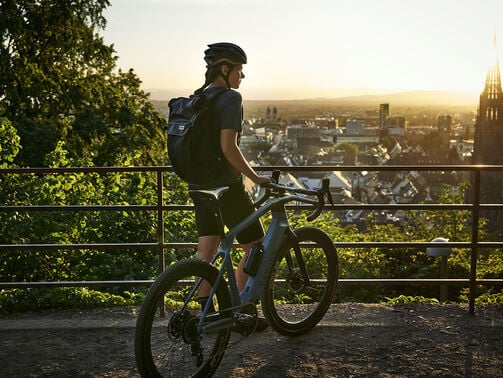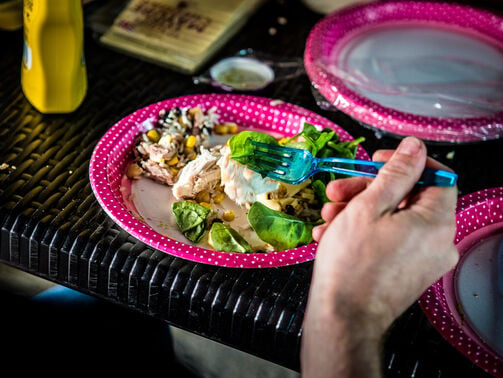Reduce back pain by cycling
If you’re experiencing back pain, the gentle movement of riding a bike can relax your back muscles and ease the pain. Want to find out more? We’ve got your back.

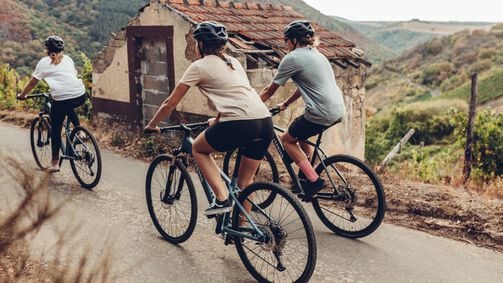
The basics: what happens to your back while cycling?
For starters, let’s assume your bike is perfect for you. It not only matches your preferred style of riding, but is also adjusted to fit your unique physiology. You are riding at a pleasant pace that isn’t too strenuous but still somewhat sporty. You may barely notice it, but cycling also uses the muscles in your back.
There are small muscle groups throughout your torso which support your skeleton and keep your inner organs in place. These muscle groups are also called deep muscles. They support your vertebrae and connect your spine to other parts of your skeleton. It is very difficult to train these small muscles, which are located along your entire spine, specifically. But cycling does exactly that.
It doesn’t matter whether you’re riding an e-bike or a purely muscle-powered bicycle. Even on an e-bike, you still have to pedal; it just takes less force.
A side note on back pain:
Health insurance surveys and various studies have found that around 80 percent of people living in Germany occasionally experience back pain. In most cases, these are unspecific muscular-skeletal pains. They are typically caused by sitting for too long. School or office days with eight or more hours of sitting still aren’t good for your back.
Our back muscles can lose their effectiveness from long days of sitting in a chair. We start feeling tense in our backs, shoulders, and neck. But there’s good news: moving around helps. Even light exercise such as swimming or cycling can relax tense muscles (this is called mobilisation). Specific exercises to strengthen the relevant muscle groups can prevent future pain.
Enter the bicycle: by improving your endurance and strengthening your muscles with the even motion of riding a bike, you can help your back a lot. A good riding position takes the load off your spinal discs, while the rhythmic pedalling motion strengthens your legs and core.
Asymmetrical movement strengthens the lower back
Your arms and legs are connected to your torso via joints and muscles. When you are pedalling, you not only use the muscles in your legs. The small muscle groups in your lower back are stretching and contracting as well. This can ease muscle tension and improve circulation.
The alternating forces are transferred from your muscles to your spinal discs. As a result, they also get more blood circulation and nutrients. Your spine relaxes, and the vertebrae stay in their proper places. Cycling also helps prevent sciatic pain, which is often caused by pressure on the sciatic nerve. With a good riding position, cycling is great for your back.
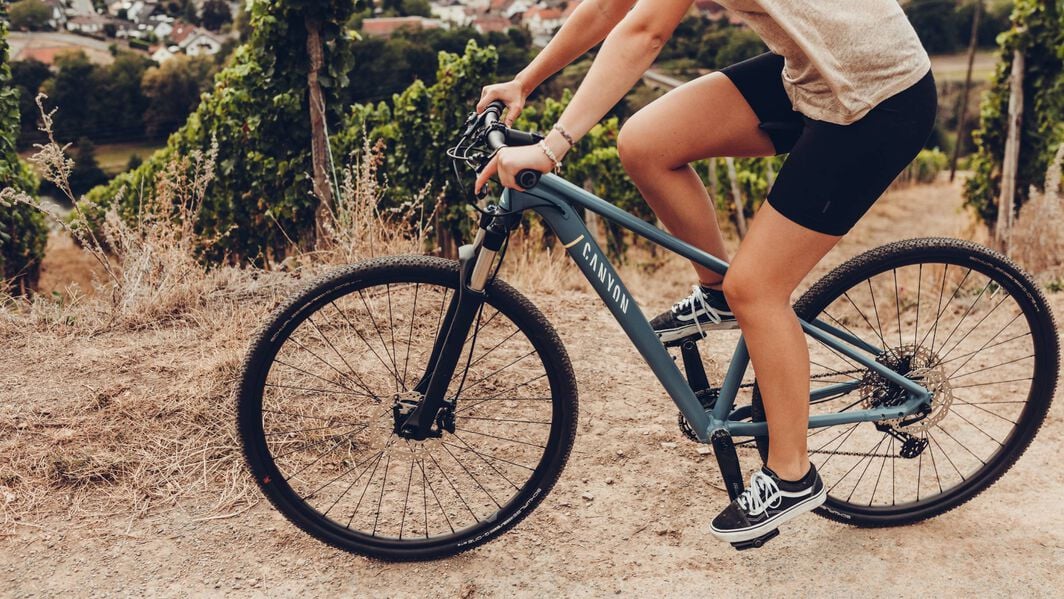
Finding the right position
While city bikes are typically built for riding upright, your torso might be almost horizontal on a road bike. What’s the best position for your back? Ideally, you should ride with your torso leaning forward slightly. But not too much, as an extreme riding position puts a lot of strain on your core muscles. A forward angle of 15 to 20 degrees is just right.
This position takes the greatest load off your spine. At the same time, it helps you train the small muscle groups in your back. Not every bike is suitable for that kind of position: at the very least, it will look quite strange on a road bike.
Which bikes are best suited for training back muscles?
The type of bike you ride also influences your riding position. Most road bike positions require a sharp bend in your neck. This can lead to a lot of tension if your muscles aren’t used to it. Gravel and mountain bikes are almost as demanding in this regard. City bikes, on the other hand, enable a much more beneficial position. If you primarily want to train your back, these bikes are definitely worth a look.
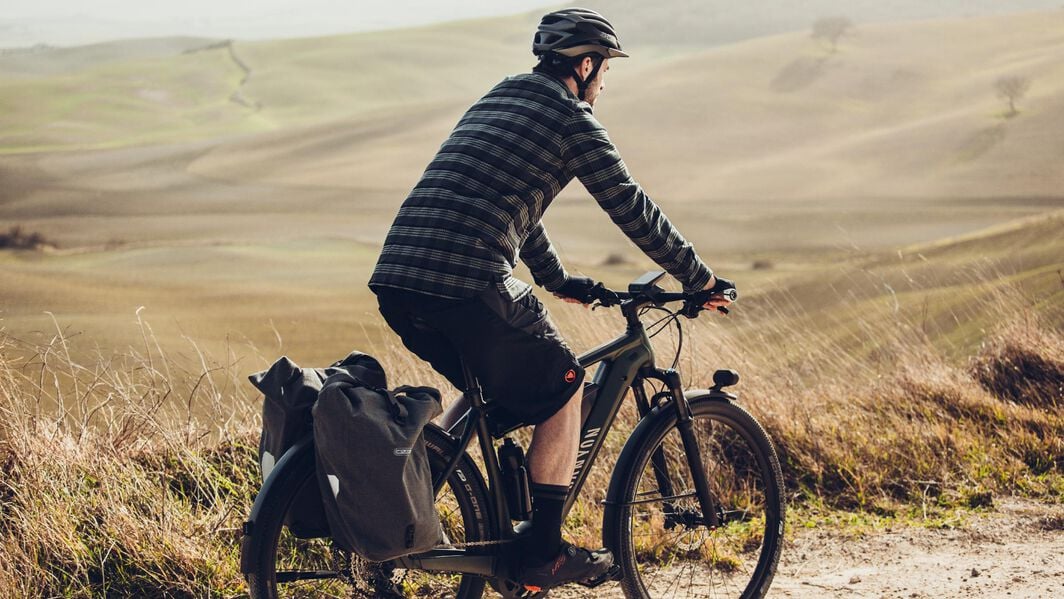
A perfect balance: touring bikes
Touring bikes offer a slightly slanted riding position. These bikes are built to keep you comfortable over long distances – and that includes the riding position. If you’re looking to prevent back pain, a touring bike is an ideal choice. This is also true if you are not exactly a performance athlete.
However, it is important to get your saddle and handlebars positioned just right. We’ll show you how to find the perfect position on your Canyon bike!
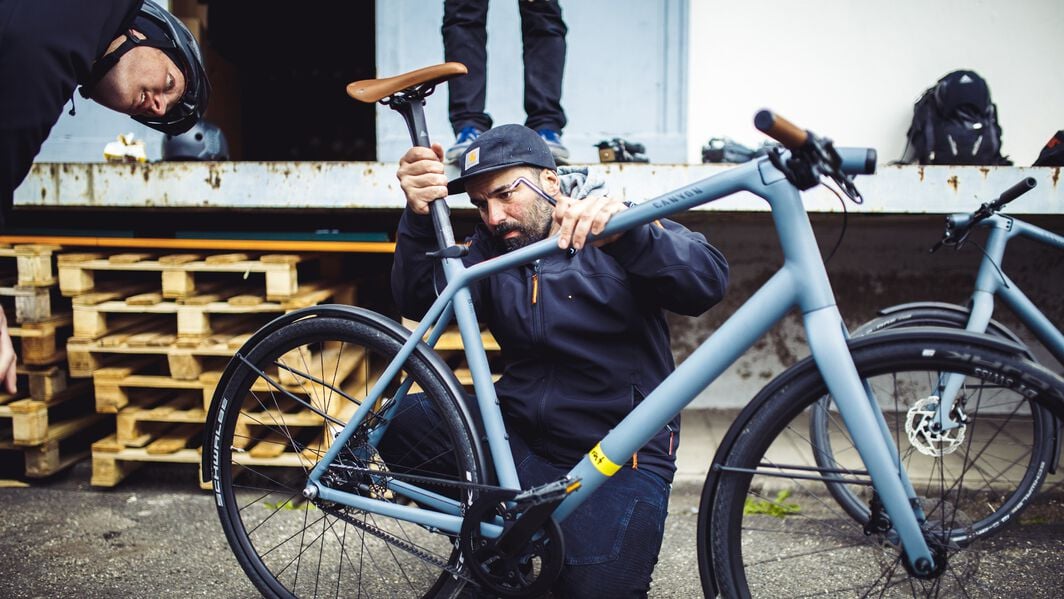
How to adjust your bike for back-friendly riding
Ideally, you would buy a bike that fits you perfectly right from the start. Check out our city and trekking bikes. But buying a new bike isn’t the only solution. Most older models also offer plenty of adjustment so you can find a comfortable position that doesn’t put too much strain on your back.
There are four main parameters: saddle height, handlebar height, handlebar width, and saddle shape. Your handlebar width should match your shoulder width. Make sure you don’t have to bend your wrists. That helps prevent excessive strain on your hands and arms. Your preferred saddle shape is highly individual. Athletic riders tend to favour low riding positions and narrow, elongated saddles. Wider saddles, on the other hand, tend to support a more upright position.
Why are these adjustments so important? If your saddle is too high, your hips have to tilt sideways while pedalling. This compresses your spinal discs. If your saddle is too low, you will strain your knees. Both are less than ideal. Adjusting the handlebars is important for training the muscles in your torso. At the same time, you don’t want to overburden your spine and elbows. Finding the right position is crucial to training your muscles while not straining your skeleton.
-
Your saddle height is ideal if your heel can just reach the pedal at the bottom of the stroke.
-
The front part of your foot should be on the pedal.
-
Handlebar height is set after finding the right saddle height.
-
Your torso should be tilted forward between 15 and 20 degrees while riding.
-
Your arms shouldn’t be stretched all the way. If they are, the handlebar and saddle are too far apart.
Do I need multiple gears?
Need is a strong word, and while gears make life easier, you can also get on fine without them. Make sure your pedal stroke is nice and round.
Clipless pedals are a wonderful invention. They let you pull up with one leg while you push down with the other. That way, you’re always training muscles in pairs. A cadence of 80 to 100 pedal strokes per minute is great for training without using too much force. It’s an ideal rhythm for your day-to-day riding.
In summary, cycling can help against a variety of back pains
In case of prolonged or intense back pain, you should always seek medical help and not just hop on a bike. Apart from that, there’s no reason not to go cycling. The gentle, even motion of a good bike ride strengthen your core muscles without being too hard. That way, your back stays healthy. You should make sure your bike is a good fit for your size and fitness level. We offer a broad range of great bikes for athletic cyclists as well as day-to-day riders. Have a look and don’t hesitate to contact us if you have any questions.
Exercises for a stronger back
Some light core exercises are another great way to strengthen your back. These exercises help prevent back pain and train important muscle groups.
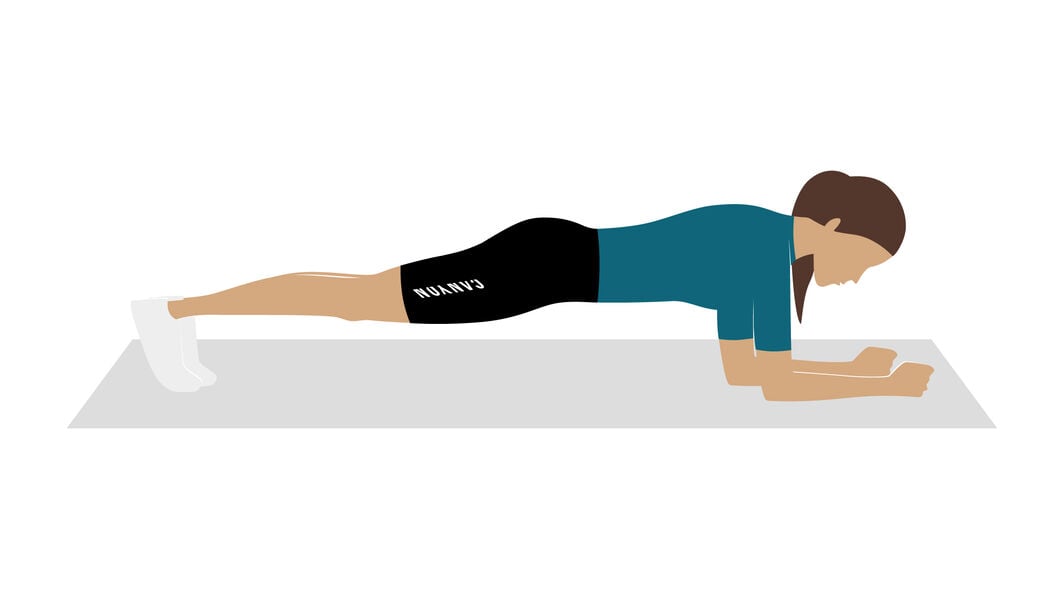
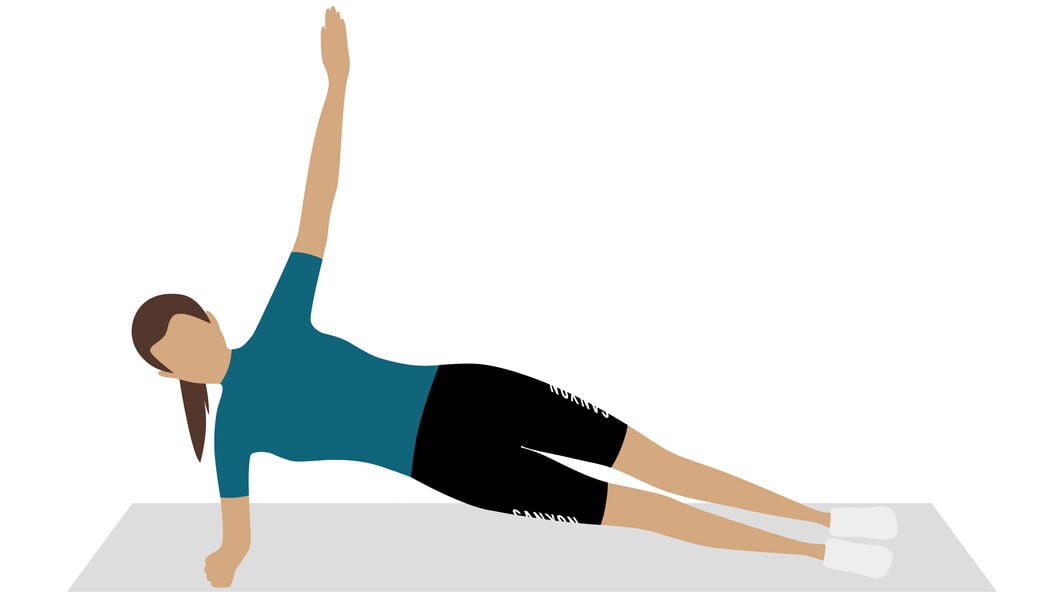
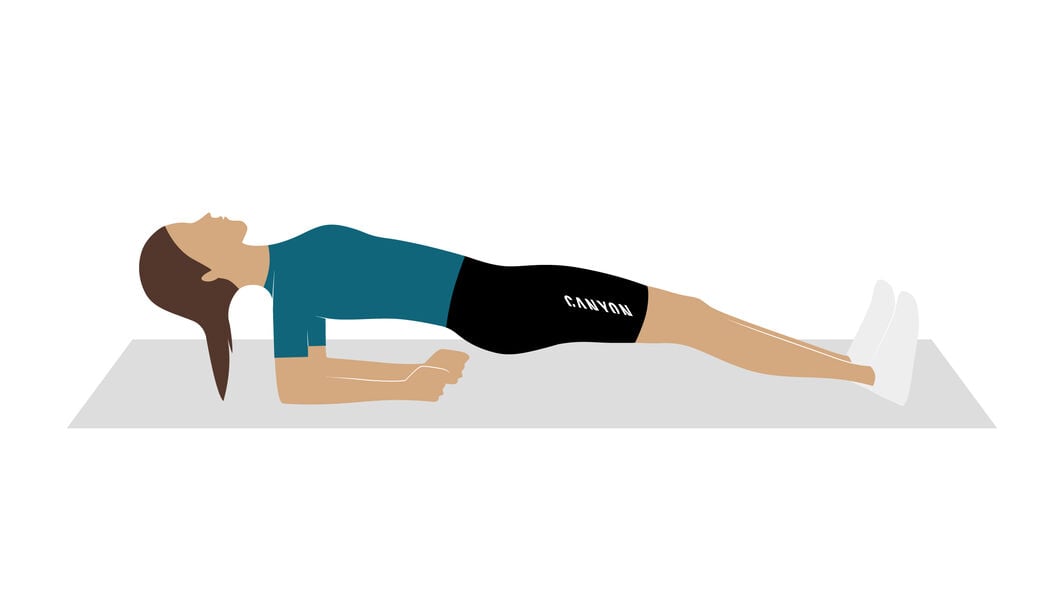
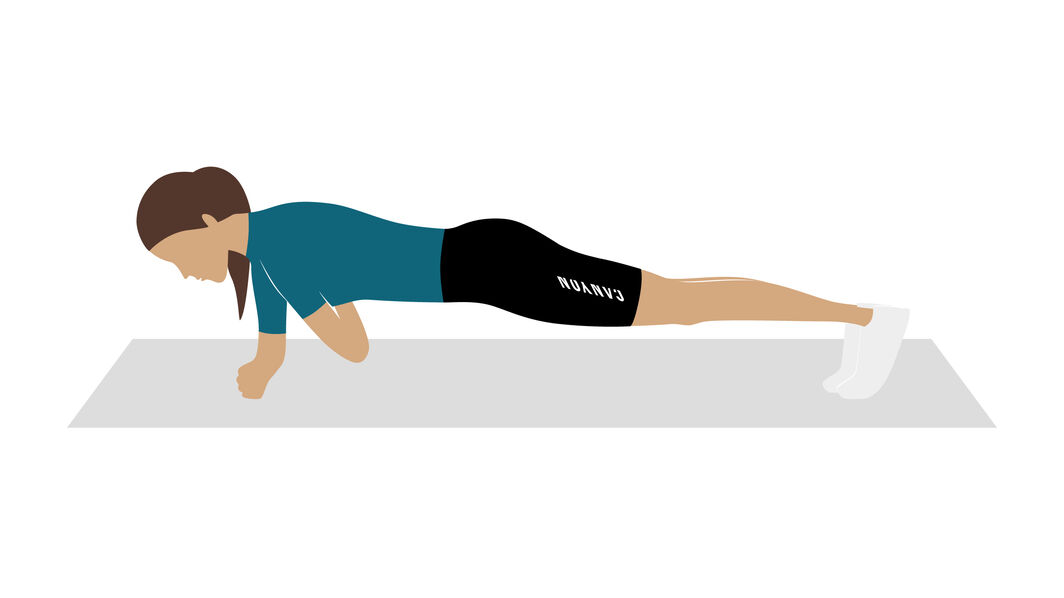
Did this article help?
Thank you for your feedback
